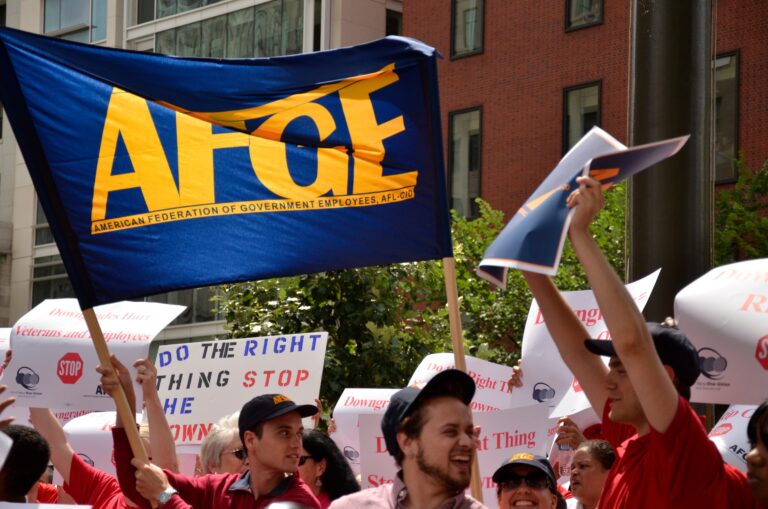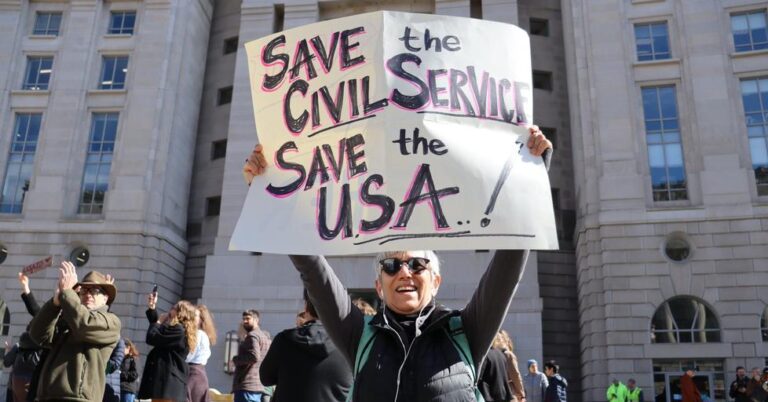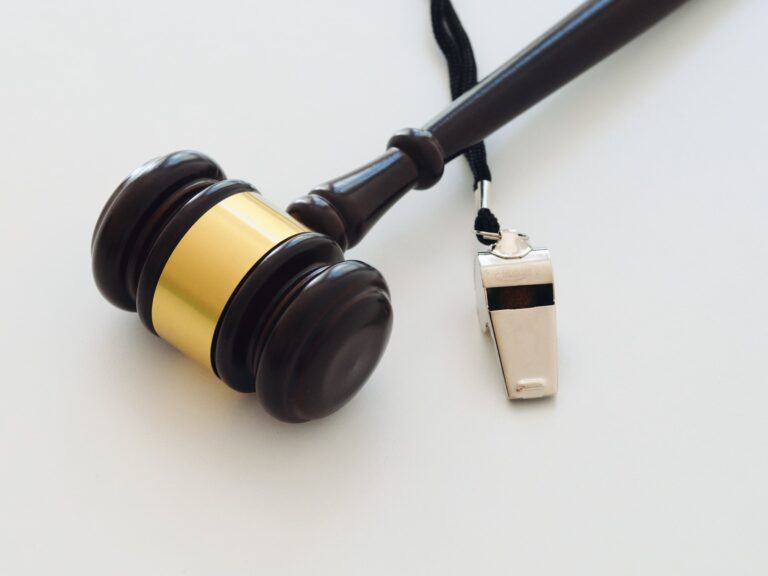Melissa Greenberg is a student at Harvard Law School.
Beginning on Monday and continuing on Tuesday, teachers in Oklahoma and Kentucky protested at their state capitols. Inspired by the successful teacher walkout in West Virginia, teachers in these states are demanding action from their state’s legislatures. Although Oklahoma recently enacted a bill increasing teacher pay, teachers have demanded that the state raise their pay by $10,000, increase pay for support staff by $5,000, provide $200 million for schools over three years, and provide $500 million for other state public employees over three years. In Kentucky, teachers are responding to cuts in educational spending and a proposal to transform teachers’ pensions into a retirement plan similar to 401(k)’s in the private sector. Teachers in Arizona are also working toward a statewide action and are currently trying to build capacity across the state. Read more here.
The Sinclair Broadcasting group faced criticism after a video went viral showing local news anchors across the country reading a company statement expressing their “concern[] about the troubling trend of irresponsible, one-sided news stories plaguing our country.” After the news of these statements went public, the Los Angeles Times revealed the steep price that Sinclair’s anchors have to pay if they leave the station. Sinclair’s employment contracts include a fine, which can total up to 40% of an employee’s yearly pay, if the employee ceases working before the contract’s term expires. The contracts also include a forced arbitration clause and a non-compete clause. These provisions may make employees hesitant to leave their jobs by imposing too high a cost on exit. Kathleen Peratis, a partner at the employment law firm Outten & Golden, suggested that these contracts may not hold up in court.
The New York Times reports on the stringent rules that cheerleaders in the NFL have to abide by at work and when they are not on the clock. Last week, Bailey Davis, a cheerleader for the New Orleans Saints, filed a complaint with the Equal Employment Opportunity Commission alleging that the N.F.L’s disparate rules for cheerleaders and players results in gender discrimination and reflects antiquated attitudes toward women. Many teams with cheerleaders require their cheerleaders to follow strict rules regarding their personal appearance and behavior. These rules may range from governing cheerleaders’ social media presence to prohibiting interactions with players. One lawyer, Leslie Levy, who represented cheerleaders against the Jets and Oakland Raiders, described the situation as “an issue of power. You see a disparate treatment between the cheerleaders, and the mascots and anyone else who works for the team. I can’t think of another arena where employers exert this level of control, even when they are not at work.” Read more here.






Daily News & Commentary
Start your day with our roundup of the latest labor developments. See all
December 5
Netflix set to acquire Warner Bros., Gen Z men are the most pro-union generation in history, and lawmakers introduce the “No Robot Bosses Act.”
December 4
Unionized journalists win arbitration concerning AI, Starbucks challenges two NLRB rulings in the Fifth Circuit, and Philadelphia transit workers resume contract negotiations.
December 3
The Trump administration seeks to appeal a federal judge’s order that protects the CBAs of employees within the federal workforce; the U.S. Department of Labor launches an initiative to investigate violations of the H-1B visa program; and a union files a petition to form a bargaining unit for employees at the Met.
December 2
Fourth Circuit rejects broad reading of NLRA’s managerial exception; OPM cancels reduced tuition program for federal employees; Starbucks will pay $39 million for violating New York City’s Fair Workweek law; Mamdani and Sanders join striking baristas outside a Brooklyn Starbucks.
December 1
California farmworkers defend state labor law, cities consider requiring companies to hire delivery drivers, Supreme Court takes FAA last-mile drivers case.
November 30
In today’s news and commentary, the MSPB issues its first precedential ruling since regaining a quorum; Amazon workers lead strikes and demonstrations in multiple countries; and Starbucks workers expand their indefinite strike to additional locations. Last week, the Merit Systems Protection Board (MSPB) released its first precedential decision in eight months. The MSPB had been […]